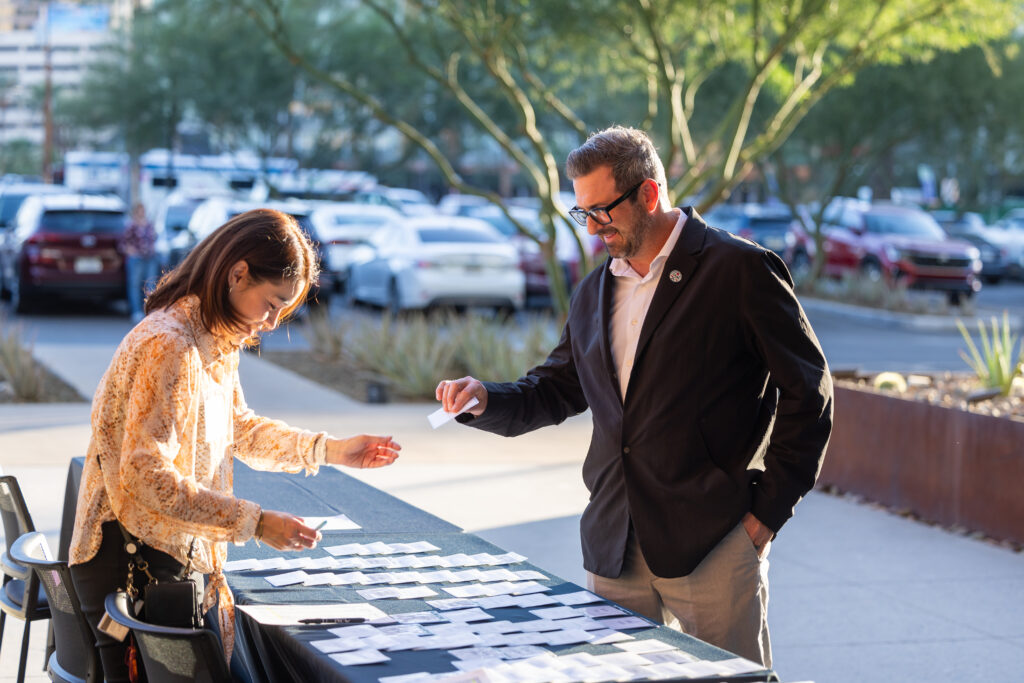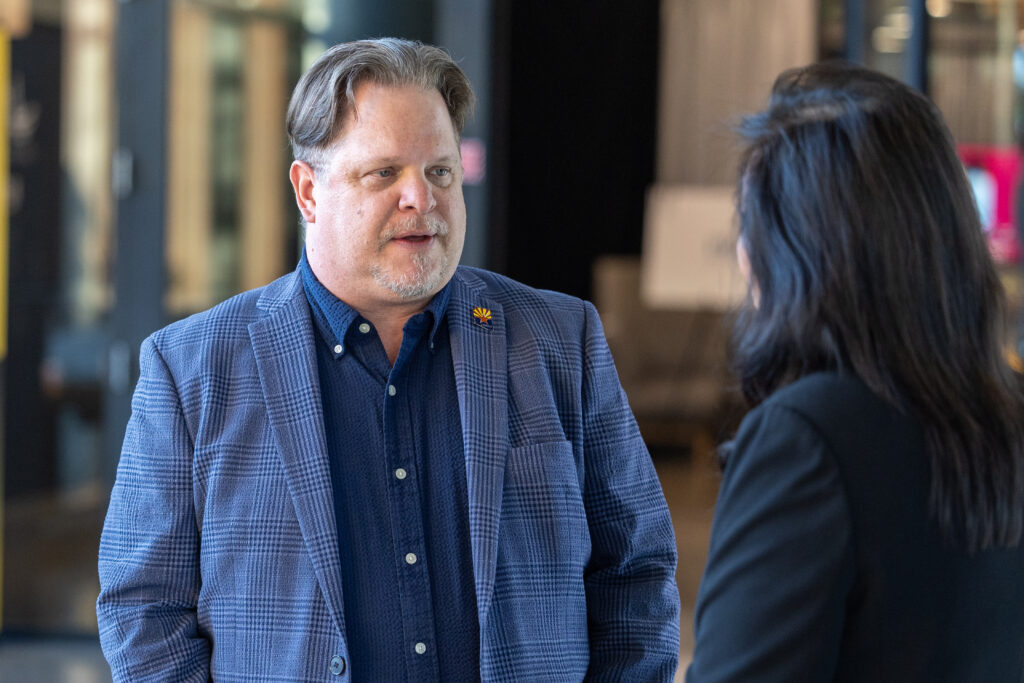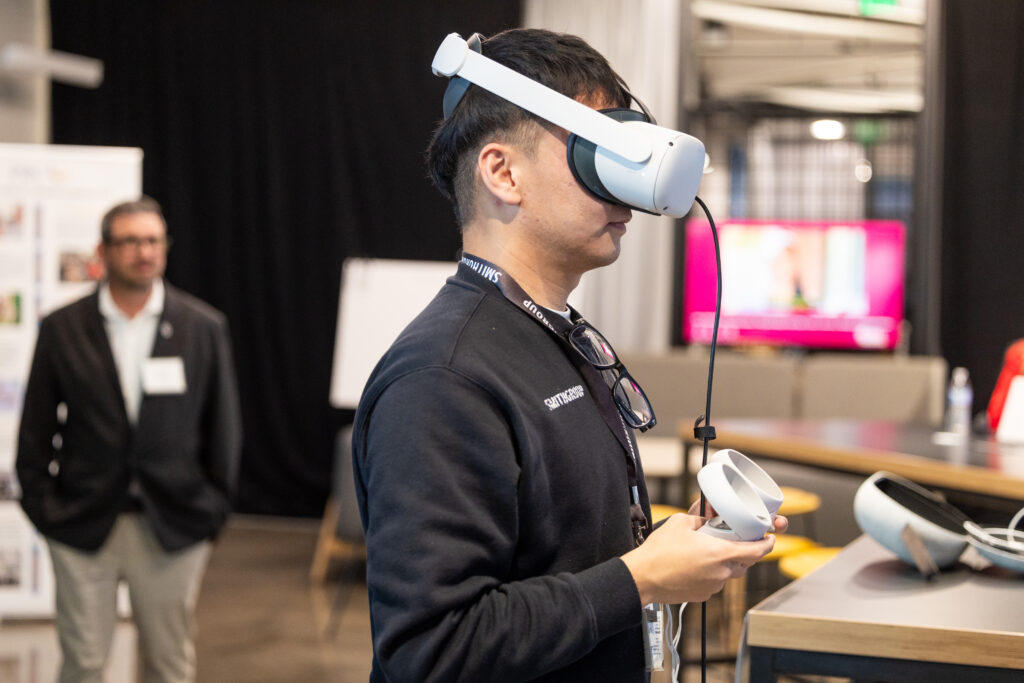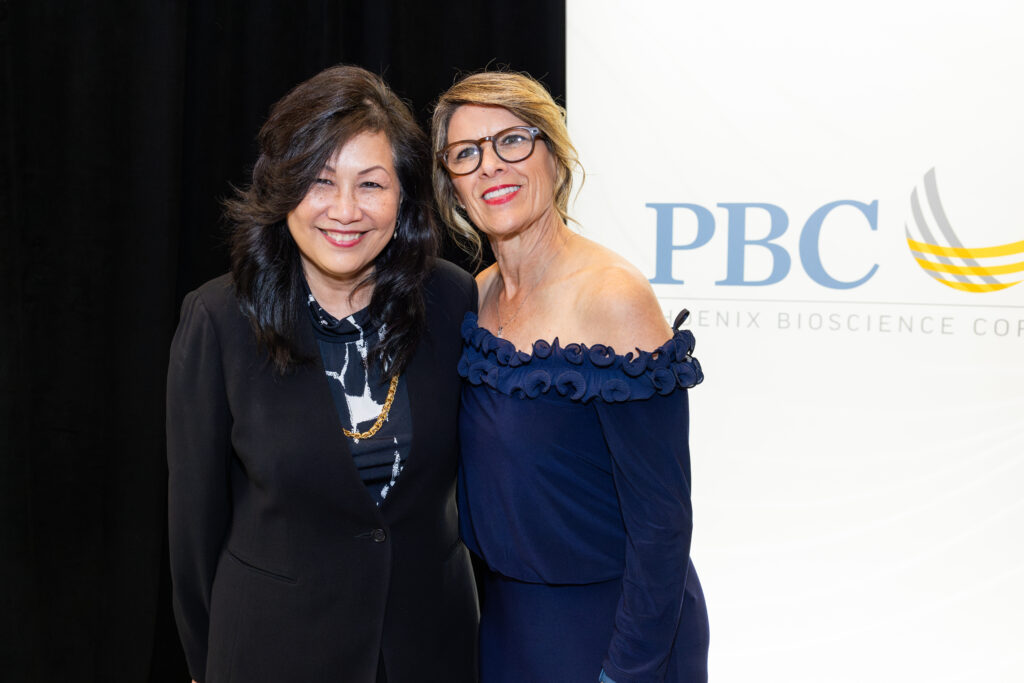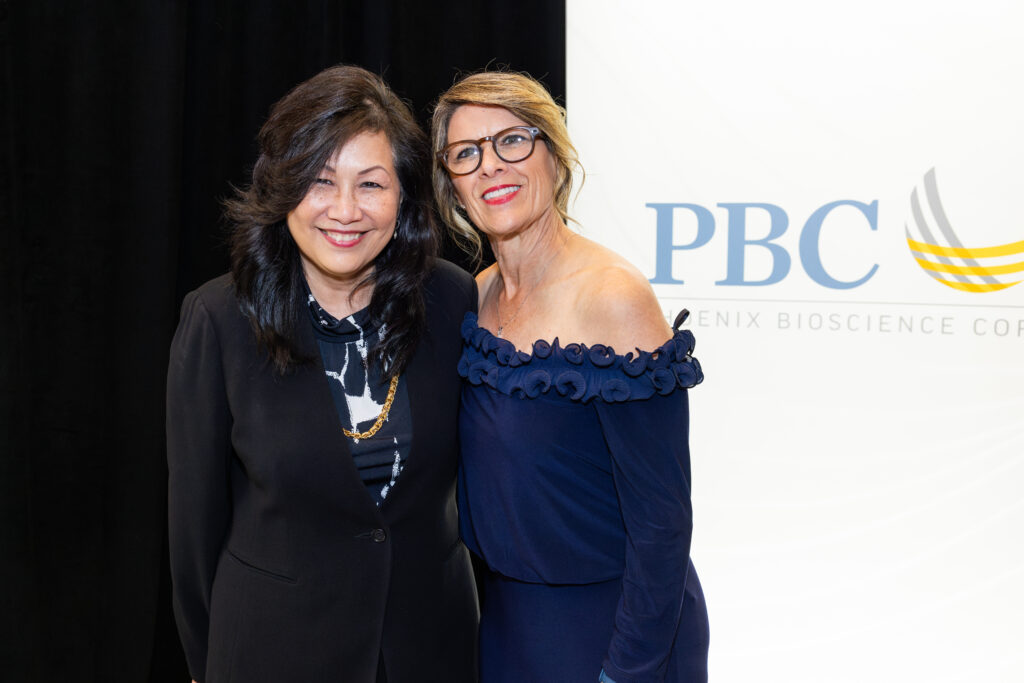
On December 3, 2024, the Phoenix Bioscience Core (PBC) hosted its 2nd annual State of the PBC event, drawing over 180 attendees from notable institutions such as ASU, NAU, UA, Honor Health, Barrow Neurological Institute, City of Phoenix, the Flinn Foundation, and other key bioscience stakeholders.
The event kicked off with a warm and energizing welcome from Regent Board Chair Cecilia Mata, who outlined the Arizona Healthy Tomorrow Initiative. This initiative focuses on ensuring Arizona has the necessary healthcare resources for future generations while developing the next generation of healthcare leaders. Chair Mata highlighted the PBC’s role in driving innovation, collaboration, and transformative health solutions, emphasizing the vital contributions of ASU, NAU, and UA to the state’s bioscience and healthcare landscape.
PBC’s Strategic Mission and Initiatives
Scarlett Spring, Executive Director of PBC, discussed the core mission of creating a connected ecosystem by bringing together key partners from academia, the clinical sector, industry, foundations, venture capital, and government. Spring outlined five key focus areas for PBC: cross-university collaborations, master planning for growth, economic development, workforce training, and fostering a strong cultural identity. She highlighted major initiatives such as the launch of the tech transfer program, the PBC Asset Study, and the development of new buildings and programs like the Center for Advanced Molecular and Immunological Therapies (CAMI). Spring also introduced the Investor Corner and the Accelerate PBC program, which aim to support early-stage companies and foster connections between entrepreneurs and investors.
Additionally, Spring emphasized the importance of fostering a strong cultural identity within PBC, citing arts programs and partnerships with the Arizona Science Center, including the ARX program. This initiative brings together nine artists and researchers to showcase groundbreaking work across the PBC.
A Vision for Phoenix as a Bioscience Hub
Phoenix Mayor Kate Gallego addressed the city’s ongoing progress toward becoming a bioscience hub. She credited Phoenix’s growth to its scientists, researchers, and construction teams who contribute to creating state-of-the-art facilities. Mayor Gallego highlighted the city’s recent $500 million bond for investments in biosciences, which includes a new medical school and a partnership with the University of Arizona. She emphasized the city’s strategic approach, which incorporates a bioscience-focused city plan, workforce investment, and efforts to attract major healthcare and bioscience conventions.
XLR8 PBC and Accelerating Startup Growth
Brian Ellerman, Executive Director of XLR8 PBC, discussed the XLR8’s 8-day intensive program designed for scale-ready Series A/B companies seeking capital, expertise, and industry validation. He announced that applications for the program would open on January 16, with selections by mid-March. Aric Bopp, Executive Director of Discovery Oasis, highlighted Mayo Clinic’s $1 billion investment in Arizona, which bolsters local healthcare and innovation. Bopp also emphasized the need for more accelerators and incubators to foster startup growth and drive technological advancements.
CAMI’s Vision for Immunotherapy Innovation
Deepta Bhattacharya, PhD, Executive Director of CAMI, shared the center’s vision for advancing immunological therapies and pushing the boundaries of treatment. CAMI aims to bridge the gap by providing essential resources to researchers, helping them secure funding and commercialize their discoveries. The center’s new facility will include a clinical research center designed to foster collaboration between academic researchers and biotech startups. Principal scientists at CAMI are exploring groundbreaking projects such as stem cell-based tissue regeneration and immune-based therapies for type 1 diabetes.
Health and Wellness Education and Workforce Development
Matt Ford, Interim Dean of the College of Health and Human Services, spoke about the success of PBC’s graduate programs in fields like athletic training, occupational therapy, physical therapy, and physician assistant studies. He emphasized the importance of addressing health disparities across Arizona, noting that nearly 700 students graduate annually to serve local communities. Keeping in line with the PBC messaging of being the connective tissue, Ford also proposed creating a collaborative health and wellness facility at PBC to integrate various programs and community partners.
Barrow Neurological Institute’s Brain Research Advancements
Dr. Michael Lawton, President and CEO of Barrow Neurological Institute, discussed the institute’s mission to advance understanding of the human brain through neurosurgery and brain-computer interfaces. He shared the success story of Nolan, a quadriplegic patient who became the first to receive a Neuralink implant, allowing him to control a computer cursor with his brain. Lawton also highlighted the implant’s success in ALS patients and the expansion of Barrow’s research efforts.
Honor Health’s Growth and Innovation in Healthcare
Todd LaPorte, CEO of Honor Health, highlighted the organization’s growth, including acute care hospitals, a rehab hospital, 33 urgent care centers, and over 600 employed physicians. He discussed Honor Health’s partnership with the ASU School of Medicine, focusing on workforce development, public health, and medical innovation. LaPorte also shared that Honor Health’s Innovation Fund has invested in 16 companies over the past five years to improve healthcare delivery.
Fireside Chat on ASU and Honor Health Partnership
The event concluded with a fireside chat facilitated by Scarlett Spring, featuring Todd LaPorte and Sherine Gabriel, Executive Vice President of ASU Health. The discussion focused on the significant partnership between ASU and Honor Health, with Gabriel explaining that Honor Health was selected as the clinical partner for ASU’s new medical school due to their shared values of community commitment and innovation.
Gabriel also shared that ASU’s medical school is on track to welcome its first class in 2026, with broader efforts underway to establish a School of Technology for Public Health and strengthen partnerships aimed at improving health outcomes. Honor Health Innovations was also introduced as the first venture capital partner in the new Investor Corner at 850 PBC, designed to foster collaboration among entrepreneurs, innovators, and investors to advance healthcare solutions.
This event showcased the powerful intersection of innovation, collaboration, and community impact that is shaping the future of healthcare in Arizona and showed the commitment of every individual and organization in being a part of the connective tissue of the PBC.
